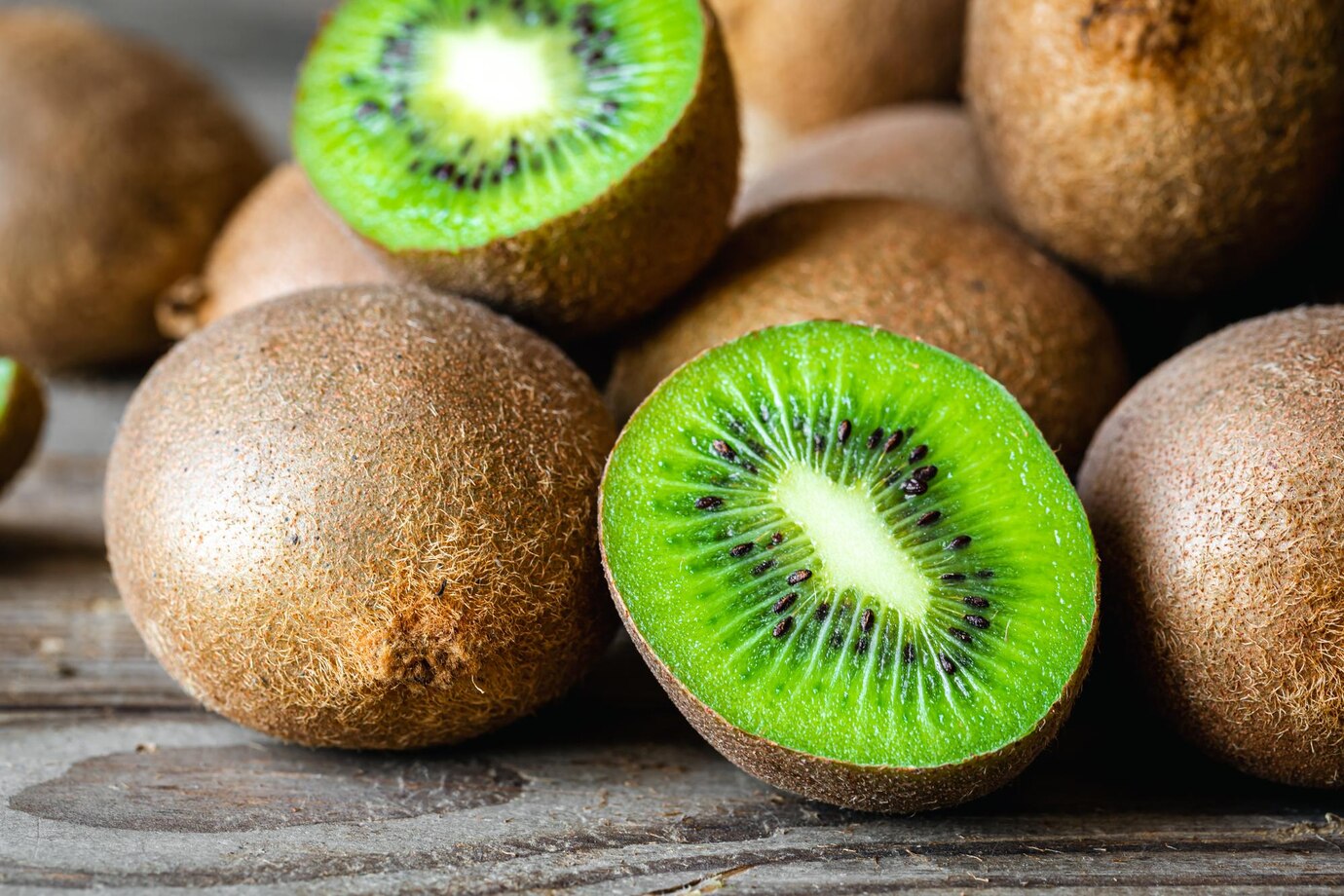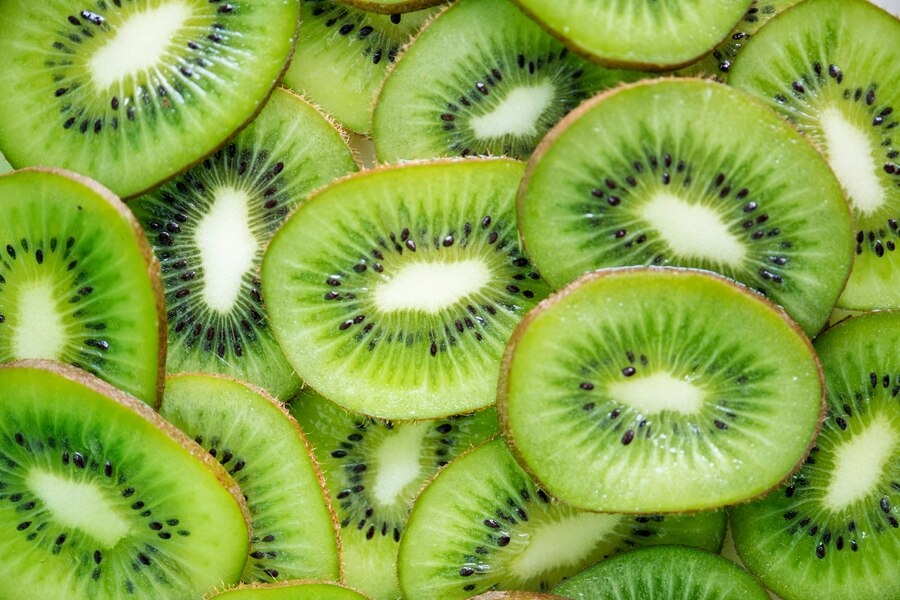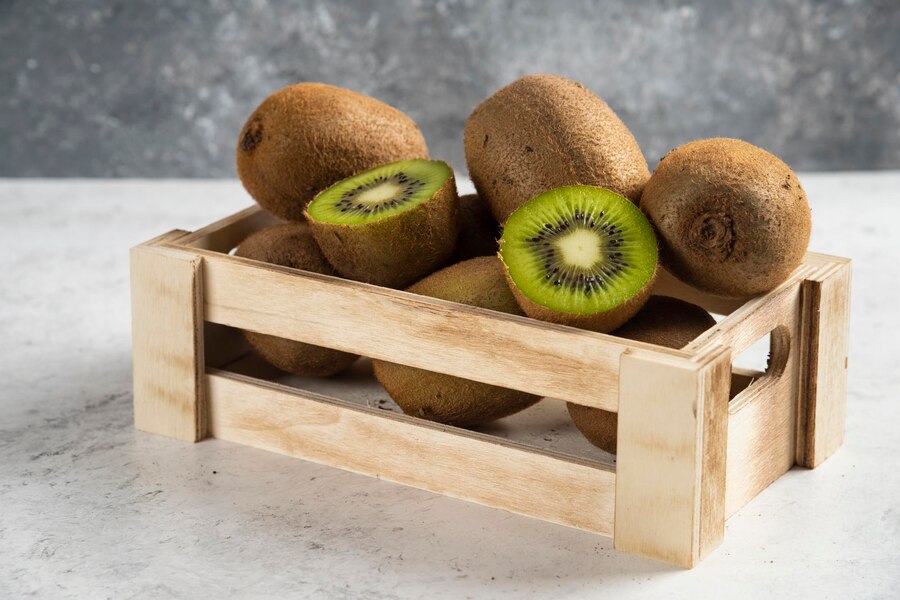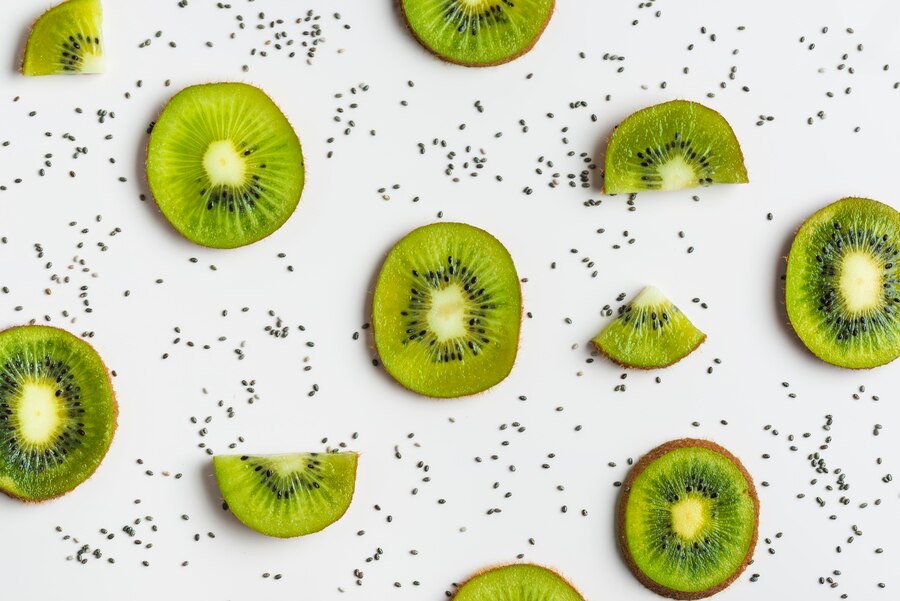
Kiwi is one of those fruits that have the properties of several fruits together.
The name Kiwi is taken from the name of a species of beautiful bird that carries the name of the national bird in New Zealand, and finally, in the sixties, this name was given to the kiwi fruit and it was called Kiwi bird.
What is the nature of kiwi?
Kiwi is a fruit with many properties and uses, and its nature is known as cold and moist.
But it is interesting to know; The sweeter the taste of the kiwi fruit, the warmer the kiwi’s character becomes, and in fact, the sweetness of the kiwi fruit has a direct relationship with the warmth of the kiwi’s character.
Kiwi lowers people’s body temperature and cools the body.
Kiwi fruit provides moisture to the body and therefore it is a good option for people with hot and dry temperament.
But on the other hand, people with a colder temperament may have problems and their body reacts when consuming kiwi.
The best remedy for kiwi fruit is honey and glangbean or a combination of fresh rose petals with honey.
Kiwi nutritional value
The small kiwi fruit contains a treasure trove of nutritional wonders. Kiwi is an excellent source of vitamin C (ascorbic acid). Some other vitamins such as vitamin A, folate, vitamin E (alpha tocopherol) and vitamin K (phyllovinone) are also present in kiwi in an acceptable amount. Kiwi also contains a lot of potassium along with other minerals such as calcium, magnesium and phosphorus.
Benefits and healing properties of kiwi
Kiwi has antioxidant properties
Kiwi provides a significant amount of vitamin C along with other phenolic and carotenoid components (pigments effective in photosynthesis) that bring health benefits. A comparative study of fruits, including kiwi, orange and grapefruit, showed that kiwi fruit contains strong antioxidant properties compared to other antioxidant fruits. Due to the presence of nutritional phytochemicals, the ability to protect DNA in body cells. It contains oxidative damage caused by free radicals, thus reducing the risk of inflammation and related diseases.
Kiwi helps cardiovascular health
As mentioned earlier, kiwi contains protective polyphenols along with vitamin C, vitamin E and potassium, which are effective in maintaining cardiovascular health. A research study has shown that kiwi has inhibitory activities that reduce triglycerides in the blood. According to studies, daily consumption of kiwi reduces the aggressive response of platelets and the risk of blood clotting. This fibrolytic effect of the fruit in the blood vessels prevents the risk of thromboembolism and heart disorders such as atherosclerosis.
Kiwi benefits for the digestive system
Kiwi helps to keep the digestive system healthy. Kiwi is rich in fiber that helps digestion and intestinal health. Kiwi stimulates the intestinal system to prevent constipation. Among the other properties of kiwi, we can mention its anti-constipation properties. For this reason, we recommend kiwi consumption as a natural laxative with many properties to people who suffer from constipation.A study on kiwi showed that it stores a good amount of the proteolytic antioxidant actinidin, which improves the digestion of proteins. Kiwi extract increases the growth of lactic acid and prevents the growth of Escherichia coli bacteria and helps maintain digestive health.
Kiwi properties for the skin
Kiwi properties for the skin Kiwi contains a high amount of vitamin C and helps maintain skin health and helps the process of collagen synthesis. Vitamin E, which is present in kiwi, helps to remove facial skin wrinkles. Also, vitamin E will protect your skin from the ultraviolet rays of the sun. Kiwi acts as an anti-aging agent due to its antioxidants. and prevent the skin from premature aging.





